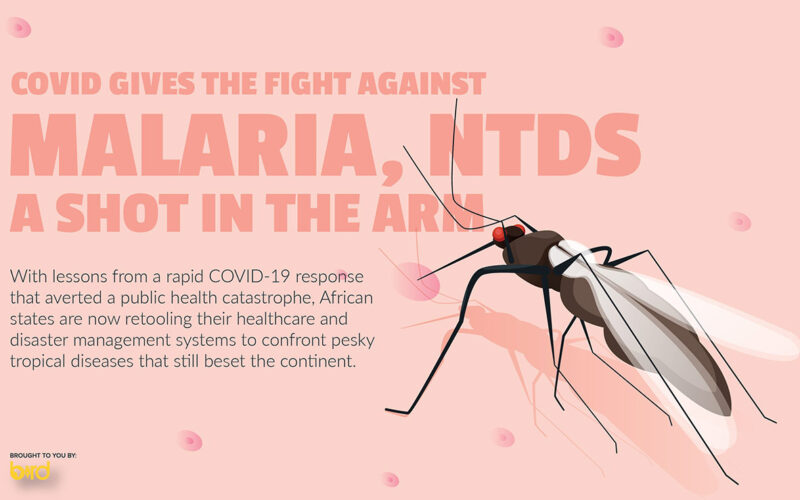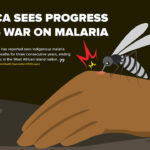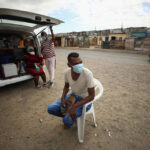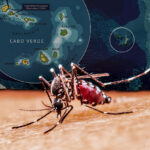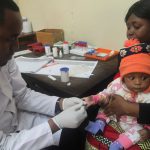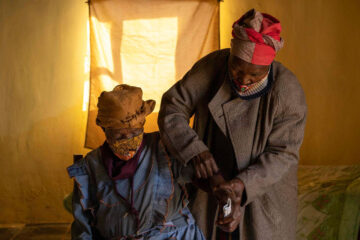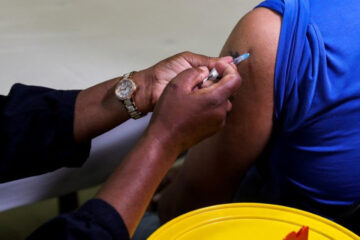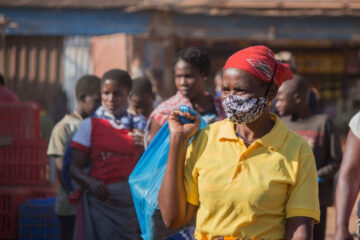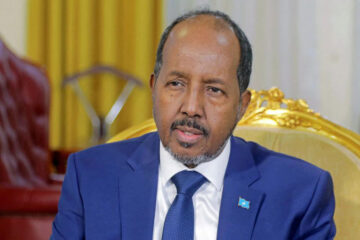SETH ONYANGO, BIRD STORY AGENCY
AT the Kigali Summit last month, states, donors and pharmaceutical pledged over US$4 billion of new funding to end malaria and neglected tropical diseases (NTDs).
It was the first in a series of commitments to bolster progress against the aforementioned diseases in Africa where malaria still kills thousands.
Nature journal analysis shows there were an estimated 241 million cases of malaria and 627,000 deaths globally, with 95 per cent of these cases reported in Africa.
But this could change as governments, using lessons learned to battle coronavirus, cooperate and adapt healthcare systems in an invigorated push to end the parasitic disease and NTDs.
African states would hope to deploy strategies such as those used by Nigeria, leveraging the switch to virtual consultations and digital technology to connect caregivers with doctors during the pandemic to control malaria and NTDs, as presented by the country’s health minister, Osagie Ehanire at the Kigali summit.
Despite Covid restrictions, Nigerian President Muhammadu Buhari told the summit the country distributed 17 million insecticide-treated bed nets and scaled up preventive chemotherapy for NTDs to 23 million children.
Rwanda is attempting to combine malaria treatment with other medical services as well, in a multipronged approach to combat NTDs.
NTDs are a group of 20 diseases including leprosy, Buruli ulcer, Chagas disease, dengue and chikungunya, sleeping sickness and river blindness, and are neglected since many are asymptomatic and have long incubation periods.
Before the Kigali international summit, total funding for malaria control and elimination was rough US$3.3 billion, just under half of the US$6.8 billion needed by the WHO to slash malaria cases by 90 per cent over the next decade.
With new funding pledges coming through, African states hope to combine both existing emergency health care protocols and innovation to respond to old medical challenges.
“Ensuring that all African countries mobilise the domestic financial resources required for quality healthcare, is a priority for the African Union, and our partners,” urged President Paul Kagame of Rwanda.
“If there is one thing the pandemic has taught us, it is that together, through coordinated and collaborative action, we can achieve much more.”
At the summit, malaria and NTD-affected countries pledged more than US$2.2 billion in domestic resources toward ending these diseases.
According to Nature journal, high-income countries, philanthropic organisations and pharmaceutical companies pledged the remainder of the bill.
Big pharma like London-based GSK pledged to research and development (R&D) investments worth US$1.23 billion over ten years for malaria, tuberculosis, HIV, NTDs and antimicrobial resistance.
“Novartis, based in Basel, Switzerland, announced US$250 million over the next five years for research on new treatments for malaria and NTDs; and Pfizer, based in New York City, has pledged US$1 billion to the International Trachoma Initiative, which fights the blinding bacterial infection trachoma,” Nature said.
It is the biggest push to eliminate malaria and NTDs Africa has had in years and it is expected to build on the progress already made.
ReliefWeb analysis shows many countries have made strides in elimination goals, with leprosy no longer a public health problem except only for Comoros.
“Forty-one African countries have been certified free of Guinea worm – a crippling parasitic disease. The Democratic Republic of the Congo is preparing for certification this year. Benin, Cote d’Ivoire and Togo have been validated for eliminating sleeping sickness as a public health problem,” states ReliefWeb.
“Equatorial Guinea, Ghana, Rwanda and Uganda have started the validation process towards elimination.”
Africa will now aim to align healthcare spending with the Abuja Declaration, where African Union (AU) member states met in 2001 and committed to allocate 15 per cent of their budgets to health.
At the time this was meant to prepare the continent to confront health challenges like malaria and tuberculosis.
In Senegal, for example, President Macky Sall is ramping up efforts to establish a sovereign national pharmaceutical industry, not just for his country, but for Africa.
“In view of the effects of the Covid-19 pandemic, the Head of State reminded the Government, of the imperative to consolidate a resilient national pharmaceutical industry,” he said in a statement last year.

